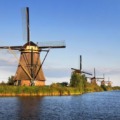Visiting Morocco is an immersive journey into a vibrant tapestry of diverse landscapes, rich cultural heritage, and warm hospitality. From the bustling markets and maze-like streets of cities like Marrakech and Fez, where the aromas of spices mingle with the sounds of bustling souks, to the serene beauty of the Atlas Mountains and the golden sands of the Sahara Desert, Morocco offers a kaleidoscope of experiences. The country’s architectural marvels, including the intricate designs of Islamic mosques and ancient kasbahs, stand as testaments to its historical and artistic heritage. Exploring the labyrinthine medinas, savoring flavorful tagines, and bargaining in the vibrant souks are all part of the enchanting Moroccan experience. Additionally, encounters with Berber communities in the High Atlas Mountains and coastal towns like Essaouira offer glimpses into traditional ways of life. With its blend of ancient traditions and modern influences, Morocco welcomes travelers with open arms, promising an unforgettable blend of cultural immersion, breathtaking landscapes, and captivating history.
Marrakech
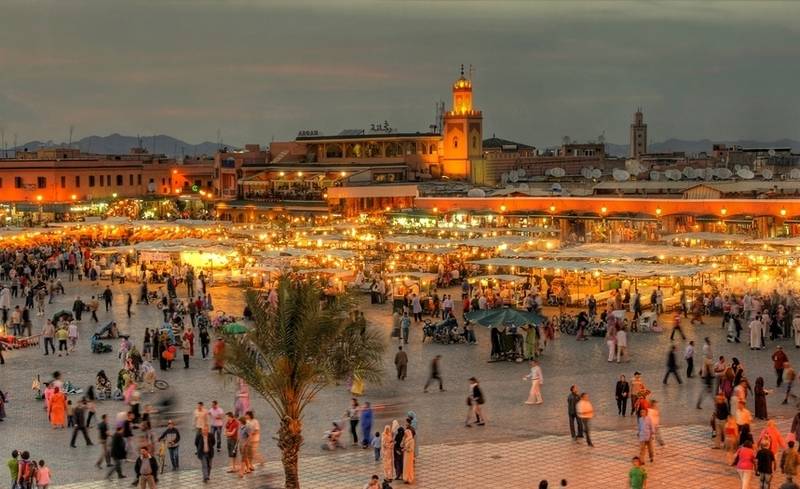 Djemaa El-fna square. chantal-de-bruijne/shutterstock |
Marrakech, known as the “Red City,” captivates visitors with its enchanting blend of ancient traditions and modern delights. The iconic Djemaa el Fna square stands as a vibrant hub where snake charmers, storytellers, and bustling market stalls create an electric atmosphere against the backdrop of the Koutoubia Mosque. The city’s historic medina, a UNESCO World Heritage Site, unfolds a maze of narrow alleys, ornate riads, and souks offering an array of handicrafts, spices, and treasures. The opulent gardens of Majorelle and the serene Bahia Palace beckon visitors to unwind amidst stunning architecture and lush greenery. Marrakech’s rich history, cultural vibrancy, and its intoxicating blend of sights, sounds, and flavors make it an irresistible destination, inviting travelers to immerse themselves in its exotic charm.
Fes
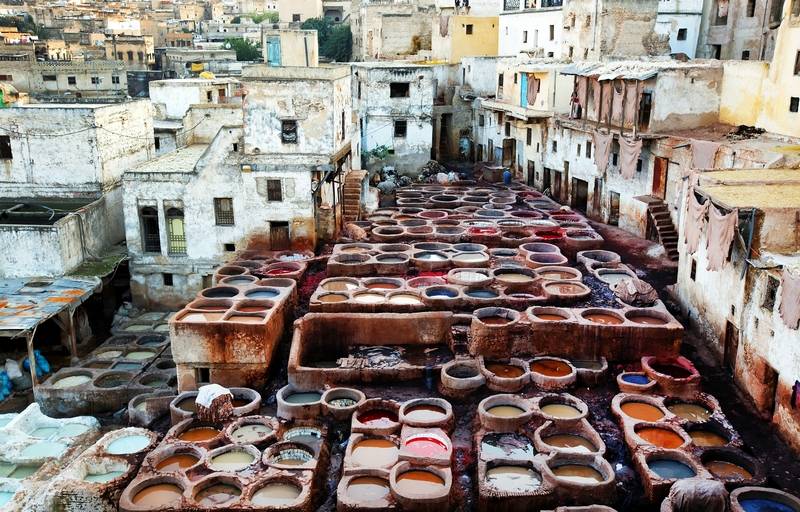 Fes Tanneries. rechitan-sorin/shutterstock |
Fes, Morocco’s spiritual and cultural heart, is a city steeped in history and mystique, offering an immersive journey into the country’s rich heritage. Known for its well-preserved medieval architecture and the sprawling labyrinthine medina, Fes el-Bali, a UNESCO World Heritage Site, the city transports visitors back in time with its intricate mosaic-covered walls, ancient mosques, and vibrant souks filled with artisans practicing traditional crafts. The elaborate architecture of the Al-Qarawiyyin Mosque, believed to be one of the world’s oldest universities, and the stunning Madrasa Bou Inania showcase the city’s architectural grandeur and religious significance. The bustling alleyways reveal a treasure trove of hidden gems, from the tanneries’ vibrant hues to the aromatic spice stalls, providing a glimpse into the daily life and cultural richness of this ancient Moroccan city. Fes’s palpable sense of history, combined with its artisanal traditions and authentic Moroccan atmosphere, makes it an unforgettable destination for travelers seeking to immerse themselves in the country’s cultural tapestry.
Volubis
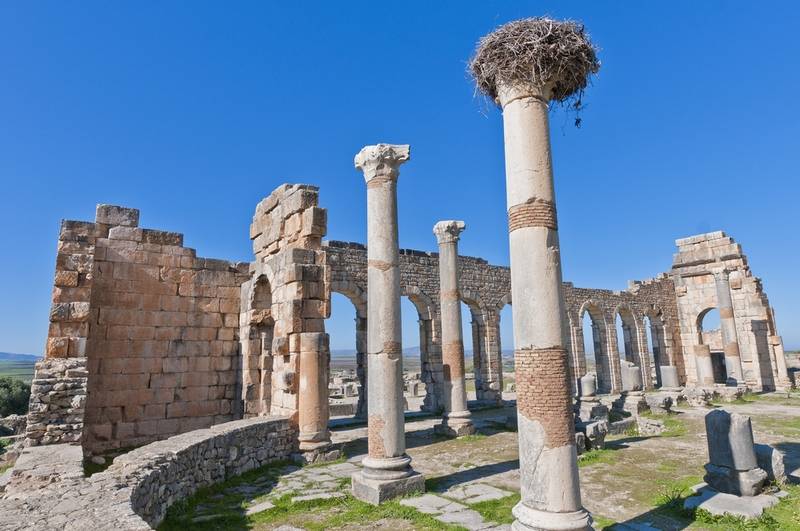 anibal-trejo/shutterstock |
This UNESCO World Heritage Site showcases the remarkably well-preserved ruins of an ancient Roman city, boasting intricate mosaics, grand arches, and imposing columns that speak volumes about the city’s former grandeur. The remains of temples, basilicas, and extravagant houses provide a vivid glimpse into daily life during the Roman Empire’s rule in North Africa. Volubilis’ strategic location along the Roman trade routes contributed to its prosperity, evident in the city’s splendid architecture and artistic expressions.
Chefchaouen
 Door in Chefchaouen. samo-trebizan/shutterstock |
Visiting Chefchaouen, nestled in Morocco’s Rif Mountains, is an enchanting experience defined by its mesmerizing blue-washed buildings, narrow winding streets, and serene ambiance. Known as the “Blue City,” Chefchaouen captivates visitors with its charming aesthetic, where every corner reveals a picturesque blend of varying shades of blue against the backdrop of the rugged mountain landscape. The medina’s cobblestone streets are adorned with vibrant handicrafts, woven textiles, and local artwork, adding to the town’s unique allure. The relaxed atmosphere invites travelers to wander and discover hidden gems, from cozy cafes offering panoramic views to the cascading waterfalls of Ras El Maa. Whether exploring the Kasbah Museum, engaging with friendly locals, or simply soaking in the serene and photogenic surroundings, Chefchaouen offers a tranquil and captivating retreat away from the hustle and bustle of everyday life.
Asilah
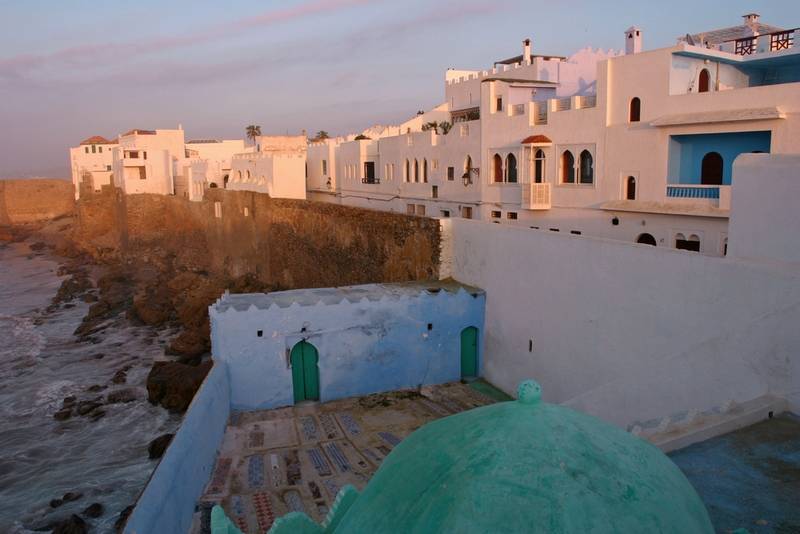
carles-fortuny/shutterstock
Encircled by ancient ramparts and overlooking the Atlantic Ocean, Asilah is renowned for its whitewashed buildings adorned with vibrant murals and intricate artwork. The Medina’s winding alleys lead to hidden squares filled with bustling markets and local crafts, while the town’s historic ramparts offer panoramic views of the sea. Asilah’s cultural heritage shines through its annual arts festival, where international artists create captivating murals on the city’s walls, infusing the town with a lively and artistic ambiance. With its pristine beaches, inviting cafes, and a captivating blend of history and contemporary art, Asilah beckons travelers seeking a serene coastal retreat enriched by cultural treasures.
Todra Gorge
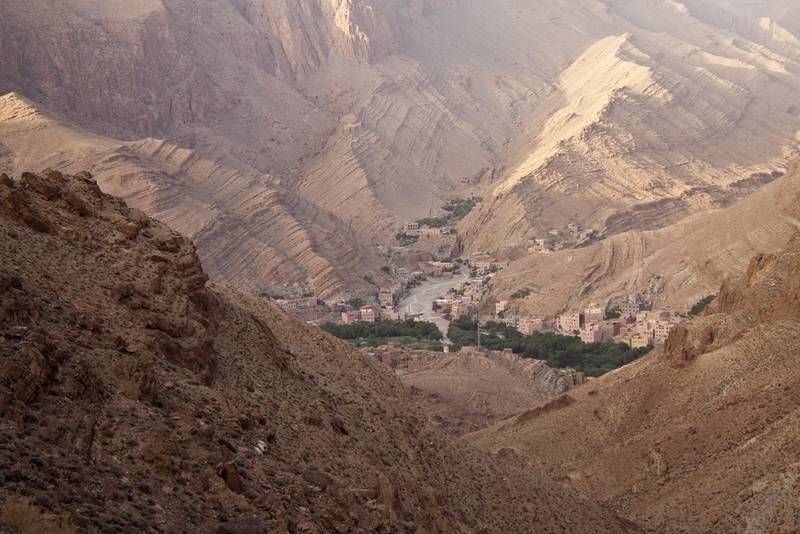
Village in Todra Gorge. m-r/shutterstock
Carved by the Todra River, the Todra gorge features towering cliffs that rise hundreds of feet, creating a narrow and dramatic canyon adorned with reddish hues. Visiting the Todra Gorge provides an opportunity for adventurers and nature enthusiasts to hike along the canyon floor, marvel at the sheer rock walls, and witness the interplay of light and shadow as the sun moves across the gorge. Travelers can explore the local Berber villages nearby, experiencing the traditional lifestyle and hospitality of the inhabitants. To visit the Todra Gorge, travelers can access it by road, with the nearest town being Tinghir, and explore its beauty either independently or through guided tours offered by local agencies. Accommodations, including guesthouses and hotels, are available in the nearby towns.
Erg Chebbi
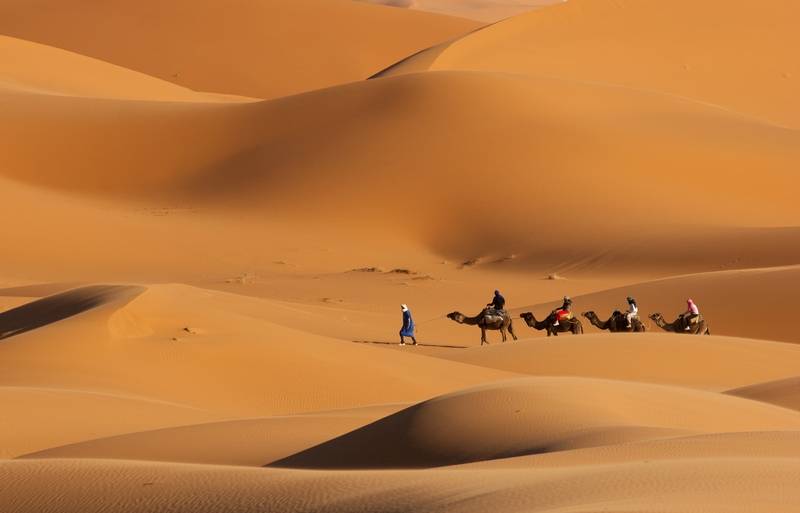 ama/shutterstock |
Erg Chebbi, situated in southeastern Morocco, stands as a mesmerizing expanse of towering sand dunes that define the captivating landscape of the Sahara Desert. These golden dunes, reaching heights of up to 500 feet, create a surreal and enchanting vista that shifts in color and form throughout the day. Visiting Erg Chebbi offers travelers an immersive experience in the desert, where they can partake in camel treks across the dunes, witness the stunning sunrises and sunsets painting the horizon, and even camp under the stars amidst the serene desert backdrop. To visit Erg Chebbi, travelers can access the nearby towns of Merzouga or Erfoud, which serve as gateways to the desert. From there, guided tours or independent excursions via 4×4 vehicles or camel rides lead visitors into the heart of the desert.
Casablanca
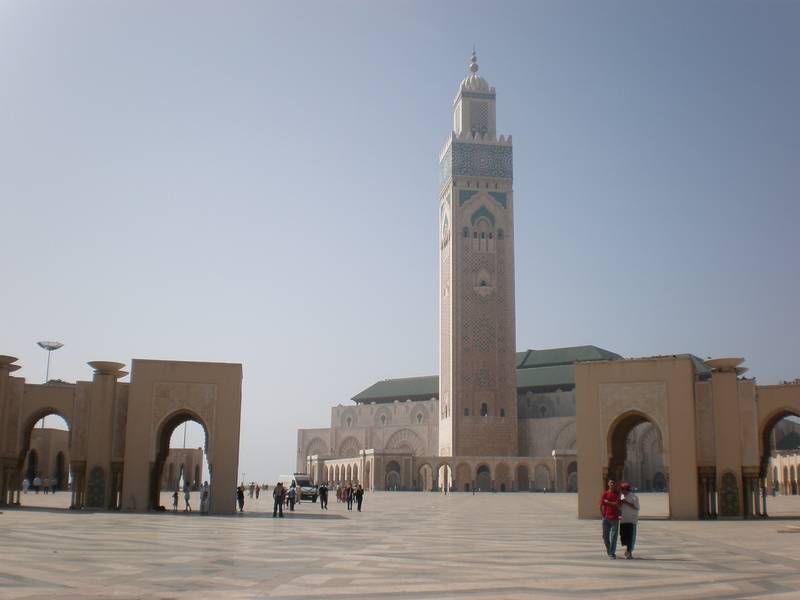
Hassan ii mosque, Casablanca
Casablanca, Morocco’s cosmopolitan coastal city, embodies a unique blend of modernity, historic charm, and cultural vibrancy. Home to Africa’s largest mosque, the Hassan II Mosque, this iconic architectural masterpiece overlooks the Atlantic Ocean, offering a spectacular sight with its soaring minaret and intricate details. The city’s bustling atmosphere is reflected in its thriving business districts, lively boulevards, and the dynamic Corniche, lined with restaurants and cafes offering panoramic views of the coastline. The historic medina contrasts with the city’s modern façade, hosting a myriad of traditional markets, art galleries, and the vibrant Habous Quarter, known for its picturesque alleyways and bustling souks.
Essaouira
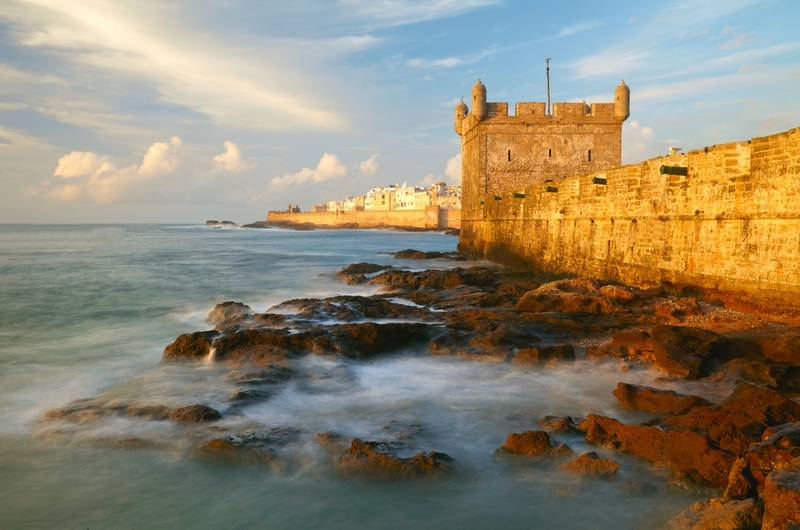 Essaouira fortress. silver-john/shutterstock |
Essaouira, a charming coastal town in Morocco, exudes a captivating blend of old-world charm, artistic flair, and coastal allure. Known for its striking blue and white buildings, fortified walls, and bustling port, Essaouira’s medina, a UNESCO World Heritage Site, presents a maze of narrow streets brimming with vibrant markets, artisans’ workshops, and local eateries. The town’s laid-back atmosphere invites travelers to explore its historic ramparts, picturesque harbor filled with blue fishing boats, and the windswept beaches where windsurfers and kite enthusiasts revel in the Atlantic Ocean’s breezes. Essaouira’s artistic spirit is evident in its galleries, showcasing local artwork and the annual Gnaoua World Music Festival, where international musicians gather for captivating performances. With its captivating coastal vistas, bohemian ambiance, and cultural richness, Essaouira offers visitors an enticing retreat that merges the charm of a seaside town with a vibrant artistic scene.
Ait Benhaddou
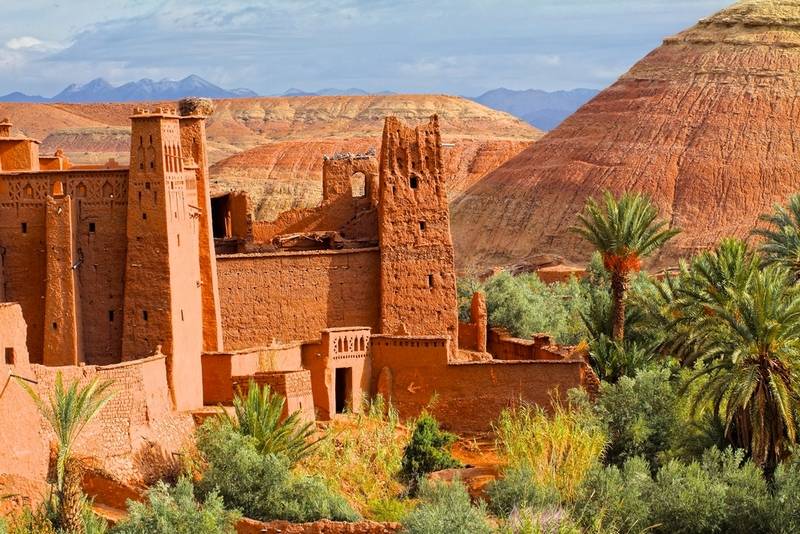 curioso/shutterstock |
Ait Benhaddou, a striking fortified village in Morocco’s High Atlas Mountains, stands as a mesmerizing testament to ancient earthen architecture and Berber heritage. This UNESCO World Heritage Site boasts a stunning kasbah, a maze of clay-brick houses stacked against a hillside, offering panoramic views of the surrounding desert landscape. The kasbah’s intricate maze of narrow alleys, shaded courtyards, and ornate buildings showcase the craftsmanship and traditional building techniques of centuries past. Ait Benhaddou has served as a backdrop for numerous films and TV shows, owing to its picturesque beauty and historical significance.
Draa Valley
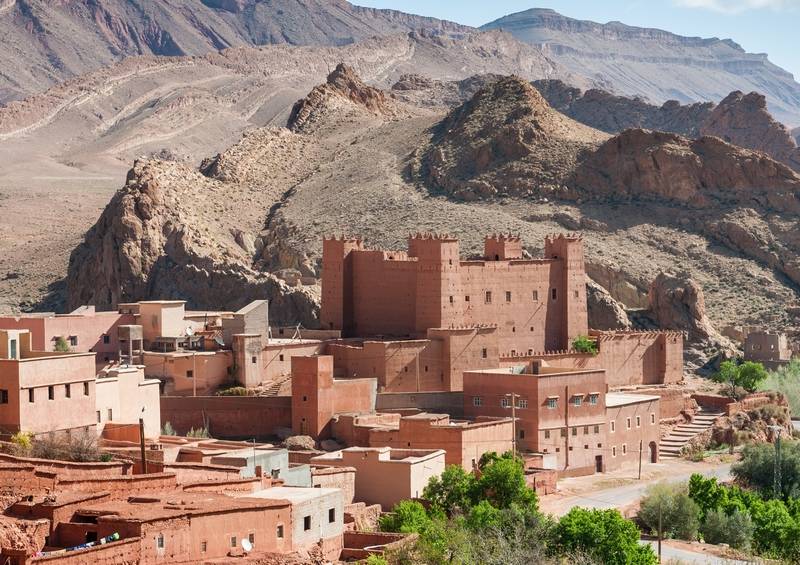 Village in the Draa Valley. digitalfabiani/shutterstock |
The Draa Valley, stretching from the High Atlas Mountains to the edge of the Sahara in Morocco, offers a mesmerizing journey through lush oases, stunning landscapes, and traditional Berber villages. This picturesque valley is renowned for its palm groves, ancient kasbahs, and terracotta villages that dot the Draa River’s banks. Traveling through the Draa Valley allows visitors to experience the tranquility of the palm-lined oasis, explore historic fortified villages like Tamegroute, known for its green pottery and ancient Quranic manuscripts, and witness the remnants of caravan routes that once connected sub-Saharan Africa to North Africa. To visit the Draa Valley, travelers can drive from cities like Ouarzazate or Zagora, embarking on scenic road trips that showcase the valley’s stunning beauty.



